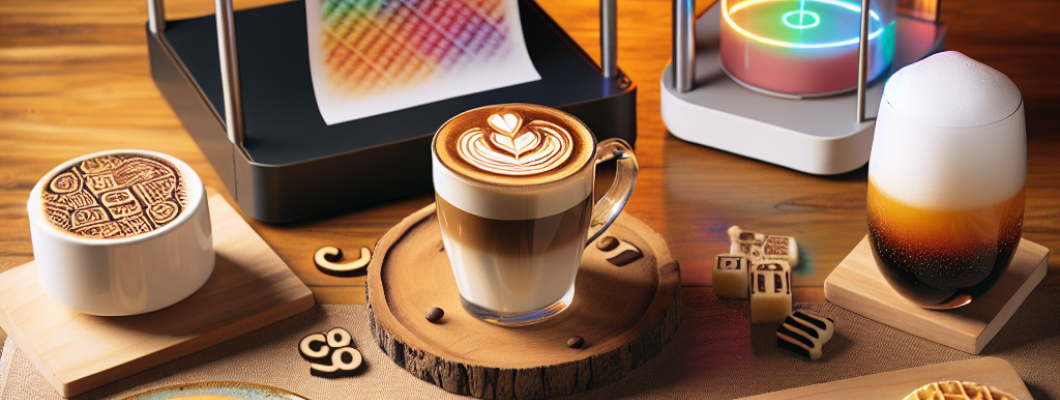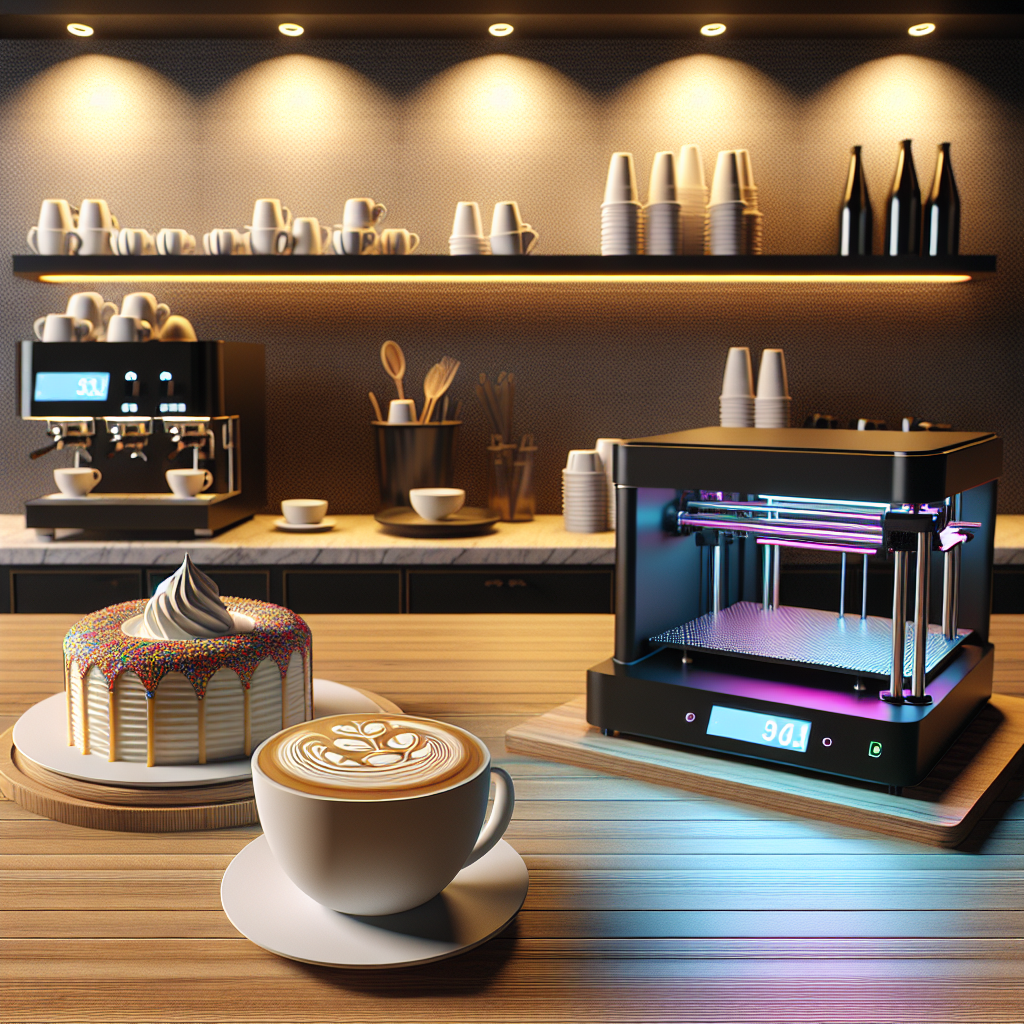Merged sustainability and personalization trends positioning coffee printing at industry forefront

Merged sustainability and personalization trends positioning coffee printing at industry forefront
In recent years, the coffee industry has experienced a significant transformation driven by the twin forces of sustainability and personalization. These trends are not only reshaping consumer expectations but also redefining how coffee businesses operate and innovate. As a result, coffee printing technology is emerging as a groundbreaking tool that integrates eco-conscious practices with customized experiences, placing the industry firmly at the forefront of modern innovation. This convergence empowers brands to connect deeply with their customers while reducing their environmental footprint, creating a win-win scenario that benefits everyone involved.

At the core of this revolution is the increasing demand for personalized coffee experiences. Consumers today seek more than just a caffeine fix; they crave unique, Instagram-worthy moments that reflect their individual tastes and personalities. Coffee printing technology, such as 3D latte printers and food printers, allows baristas and entrepreneurs to adorn cada cup with intricate designs, logos, or personal messages. This not only elevates customer satisfaction but also enhances brand loyalty, as each cup becomes a canvas for creativity and expression. Furthermore, personalized printing reduces waste, since it enables on-demand customization, minimizing excess production and materials.
Simultaneously, sustainability has become a cornerstone of responsible business practices across the globe. Coffee companies are under mounting pressure to reduce their environmental impact — from sourcing ethically grown beans to packaging waste reduction. With the advent of eco-friendly printing consumables and energy-efficient printing devices, the industry is making strides toward greener operations. For instance, some coffee printing solutions utilize biodegradable inks and recyclable substrates, aligning technological innovation with environmental responsibility. Incorporating sustainable practices into the printing process not only benefits the planet but also appeals to the eco-conscious consumer who actively seeks brands with genuine commitments to sustainability.
The intersection of these two trends—personalization and sustainability—creates a powerful synergy. By leveraging eco-friendly coffee printing technology, businesses can deliver customized products that are also environmentally responsible. For example, using plant-based inks or water-based dyes in printing processes ensures that artwork on coffee cups or latte art is both vivid and biodegradable. This fusion appeals to modern consumers who want unique experiences without compromising their values. Throughout this transformation, innovative solutions like the 3D latte coffee printers serve as essential tools for coffee shops eager to stand out in a competitive market while embracing sustainable practices.
Another critical factor driving the industry forward is the advancement in printing technology itself. Modern coffee printers are now capable of high-resolution imaging, rapid customization, and energy-efficient operations that align with sustainability goals. These devices enable businesses to offer limited-edition designs for special occasions, corporate branding, or seasonal promotions, all while reducing material waste. The ability to print directly onto coffee surfaces means fewer disposable decorations and less reliance on pre-printed packaging, further reducing environmental impact. As the technology becomes more affordable and versatile, even small cafés and startups can incorporate personalized, eco-friendly printing into their offerings, democratizing innovation across the industry.
Moreover, the sustainability-personalization nexus fosters stronger customer engagement. Customers are increasingly interested in supporting brands that demonstrate environmental responsibility and offer tailored experiences. Coffee printing enables baristas to craft individualized designs, personalized messages, or brand logos that resonate emotionally with consumers. This personalization adds an element of storytelling and connection, transforming a simple coffee into a memorable event. When combined with eco-friendly practices, this approach emphasizes authenticity, ethics, and creativity—values that resonate profoundly with today"s socially conscious audience. As a result, coffee brands adopting this dual focus often see increased customer loyalty and positive brand perception.
The industry is also witnessing a shift toward sustainable sourcing and transparent supply chains, which synergize with the use of environmentally friendly printing methods. By partnering with ethically certified coffee growers and utilizing biodegradable printing materials, companies reinforce their commitment to sustainability at every level. These efforts contribute to a circular economy—reducing waste, conserving resources, and supporting local communities. This holistic approach not only appeals to eco-conscious consumers but also prepares the industry for future regulations and global standards aimed at environmental preservation. Embracing sustainability in tandem with personalization sets a new benchmark for responsible innovation that benefits everyone involved—from coffee farmers to end consumers.
Looking ahead, the integration of digital printing technology and sustainable materials is poised to accelerate further. Innovations in bio-based inks, water-saving printing processes, and smart design software will enable even more refined customization with less environmental impact. Moreover, the rise of eco-certifications and consumer education campaigns will likely increase demand for sustainable coffee products featuring personalized designs. Coffee businesses that proactively adopt these technologies and principles will have a competitive advantage, establishing themselves as industry leaders committed to responsible growth and creative excellence. Additionally, expanding the application of these advancements beyond hot beverages—such as in packaging, labels, and merchandise—can amplify their environmental benefits and brand visibility.
In conclusion, the confluence of sustainability and personalization is transforming the coffee printing landscape, positioning it at the industry"s cutting edge. Through innovative technological solutions like 3D latte printers and environmentally responsible practices, coffee brands can delight customers with unique, personalized designs while contributing positively to the planet. This dual approach fosters a deeper emotional connection with consumers and demonstrates a genuine commitment to ethical and sustainable practices. As this trend continues to evolve, coffee businesses that embrace eco-conscious innovation and personalization will not only thrive commercially but also set new standards for responsible industry leadership. The future of coffee printing is bright—fueled by creativity, sustainability, and an unwavering focus on customer experience.
```
Leave a Comment